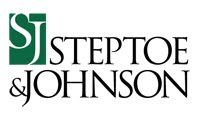While the New Jersey Senate and Assembly continue to debate state-wide sick leave laws, four more New Jersey municipalities have enacted mandatory sick leave laws for private employers. Effective January 2015, East Orange, Paterson, Irvington and Passaic will join Newark and Jersey City in requiring paid sick time for employees.
Under the recently passed ordinances of those municipalities, most employees of private employers who work a total of 80 hours or more in a covered municipality will accrue at least one hour of paid sick time for every 30 hours worked. For employees who are exempt from the overtime requirements of the Fair Labor Standards Act, employers should assume a 40 hour workweek, unless the employee’s normal workweek is less than 40 hours. If the exempt employee’s normal workweek is less than 40 hours, accrual may be based on the employee’s normal workweek.
Employees who work for employers with 10 or more employees in the municipality may accrue up to 40 hours of paid sick time in a calendar year, while employees who work for employers with less than 10 employees in the municipality may accrue up to 24 hours of paid sick time per calendar year, with some exceptions. For example, home health care workers and food service workers may accrue up to 40 hours per calendar year regardless of the size of the employer.
Paid sick time accrual begins upon the effective date of the applicable ordinance and thereafter upon the date of hire. However, accrued time may not be used until after the 90th calendar day of employment. After 90 calendar days of employment, employees must be permitted to use accrued sick time for several reasons including:
-
To care for their own or a family member’s sickness, need for medical diagnosis, care or treatment of a sickness, or need for preventative medical care; or
-
Due to a forced closing of the employee’s place of business or to care for a child whose school or place of care has a forced closing, or to care for a family member when a health authority or a health care provider has determined that the family member’s exposure to a communicable disease would jeopardize the health of other’s in the community.
The ordinances allow an employer to require reasonable advance notice where the leave is foreseeable and as soon as practicable where it is not. The ordinances also permit an employer to request that the employee confirm in writing that the time was used for a permissible purpose, and where the employee has been out for three or more consecutive days, the employer may request reasonable supporting documentation from a health care professional. An employer may not, however, require that the documentation explain the nature of the illness. To the extent any health information is disclosed, such information must be treated as confidential and only disclosed to the affected employee or with the affected employee’s permission.
Once accrued, up to 40 hours of paid sick time may be carried over into the next calendar year. An employer may, however, elect to pay its employees for unused sick time at the end of the calendar year in lieu of carry over. Note that even where an employee does carry over accrued paid sick time, an employer is not required to permit the employee to take more than 40 hours of paid sick time in a calendar year. The “calendar year” may be defined by the employer as any regular consecutive 12-month period.
Employers who already have paid time off policies that provide sufficient paid time to satisfy the total annual accrual requirements of the applicable ordinance, and permit such paid time off to be used for the same purposes identified in the ordinance, are not required to provide additional paid time. Employers should be mindful, however, that if their current policy only provides paid time off to full-time employees, either their policy should be modified to extend such paid time off to all employees who work more than 80 hours in a covered municipality or a separate policy should be implemented for part-time and temporary employees that satisfies the minimum requirements of any applicable ordinance.
While none of the ordinances require an employer to pay employees for accrued but unused sick time upon separation, if an employee is rehired within six months, any accrued but unused sick time must be reinstated. Likewise, if an employee is transferred within the municipality the employee retains any unused sick time.
Each of the ordinances provide expansive protections against retaliation and require employers to provide individual employees with notice of their rights under the law. Notice to individual employees must be in English and in the employee’s primary language, provided the employee’s primary language is the primary language of at least 10% of the employer’s workforce. Employers are also required to display a poster in a conspicuous and accessible place in each covered business establishment. In addition, employers must maintain records documenting their compliance with the applicable ordinance.
Failure to comply with these ordinances may result in fines, civil penalties, or a private action by a current or former employee. As such, employers in the covered municipalities should familiarize themselves with the applicable ordinances and take steps to ensure compliance.





